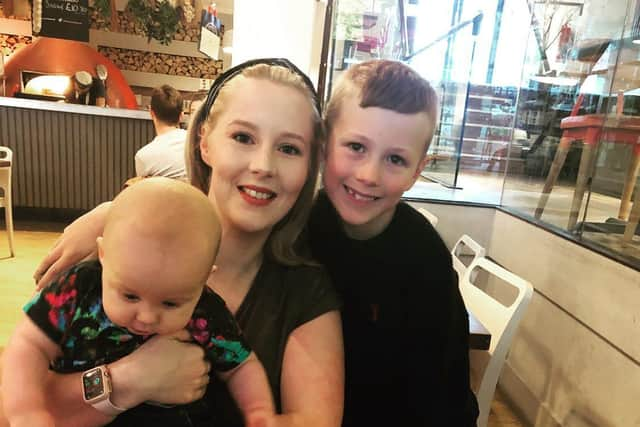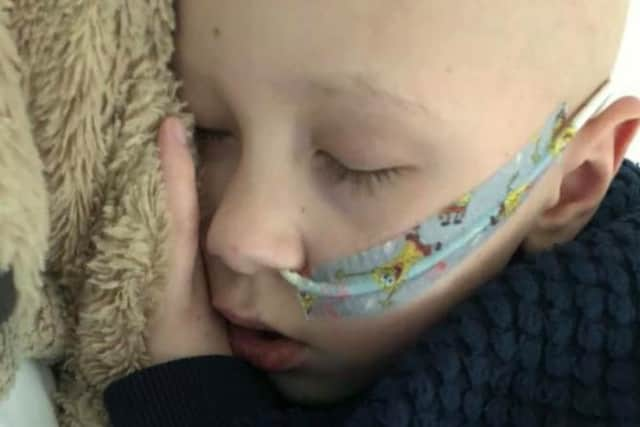Sheffield boy's brain tumour diagnosis 'delayed due to lockdown'
and live on Freeview channel 276
Riley Quinn’s mum Emily Brooke knew something was up when he started to become uncharacteristically withdrawn and angry, struggled to sleep and complained of headaches and a loss of appetite last summer.
The youngster, who lives in Hillsborough, been spending a lot of time playing computer games and watching videos during lockdown, so Emily at first encouraged him to limit his screen time, take naps and drink plenty of water.
Advertisement
Hide AdAdvertisement
Hide AdBut Riley’s condition continued to deteriorate and he was eventually admitted to hospital days before Christmas for life-saving surgery, by which point he weighed less than four stone, after a medulloblastoma brain tumour the size of a golf ball was discovered.


Riley had visited an optician and a hospital opthalmologist but despite swelling being discovered behind one of his eyes, Emily told how he was not given a CT scan until after she rang his doctor in desperation last December when the youngster’s weight plummeted and he began repeatedly throwing up.
"If I hadn’t got him to hospital that day there’s probably no way he would have survived the rest of that week,” she said.
“Had it not been for the pandemic I do think that Riley may well have been seen earlier and his brain tumour would have been diagnosed sooner which is critical in a fast-growing form of the disease like his.


Advertisement
Hide AdAdvertisement
Hide Ad“The truth is we will never really know how different things might have been without Covid but I do know that precious little is known about brain tumours which kill more children than any other cancer yet, historically, this disease has been allocated just one per cent of the national spend on cancer research.”
Emily believes Riley’s experience demonstrates the need for greater awareness about brain tumours, both among the general public and within the medical profession.
"I think if he’d have had seizures it would have been caught earlier. But he didn’t; he had loss of appetite, trouble sleeping and behavioural issues, which is why I thought it was an eating disorder,” she said.
"When he was asked to describe what he felt he said it was like he’d eaten raw fish and it had gone straight to his brain.”
Advertisement
Hide AdAdvertisement
Hide AdRiley’s operation went well and almost all the tumour was removed but he was left with posterior fossa syndrome which meant he was bedbound for more than two months and had to re-learn how to walk and talk. He has since had radiotherapy, is on a 36-week course of chemotherapy and continues to be fed via a tube.
His family have been told that the tumour may grow back but, if it doesn’t recur within five years, Riley’s chances are good.
They are working with the charity Brain Tumour Research to raise awareness of brain tumours, which it says are the biggest cancer killer of children and adults under the age of 40.
Brain Tumour Research is calling for a national annual spend of £35 million in order to improve survival rates and patient outcomes in line with other cancers such as breast cancer and leukaemia. It is also campaigning for greater repurposing of drugs.
To donate to Brain Tumour Research, visit: https://www.braintumourresearch.org/donation.